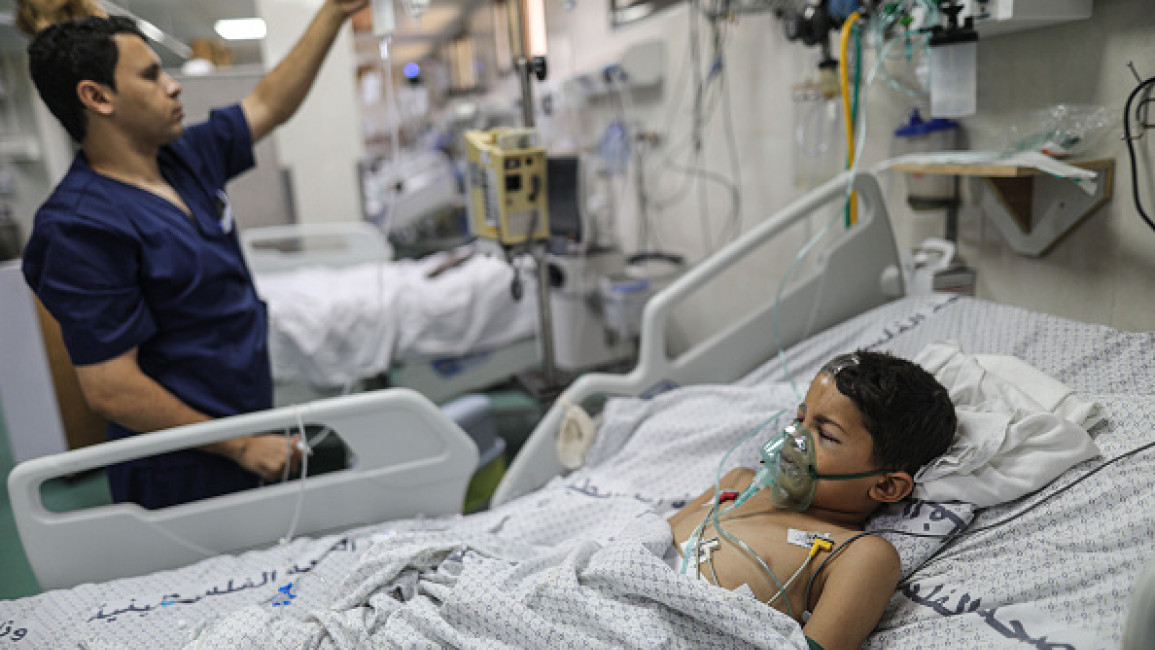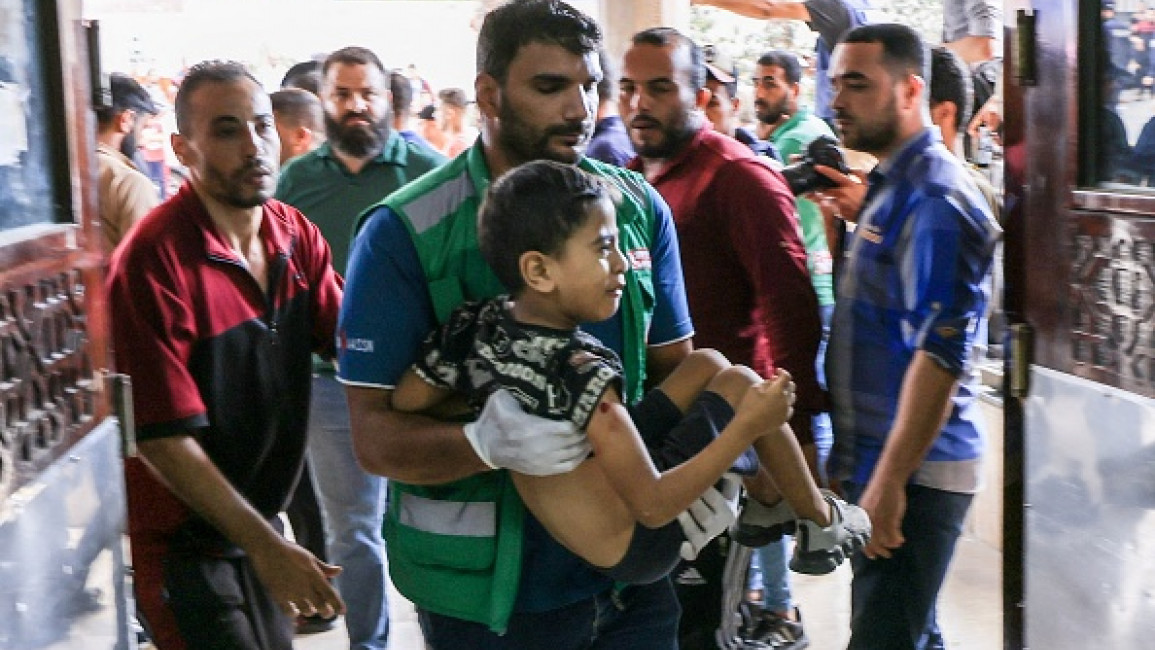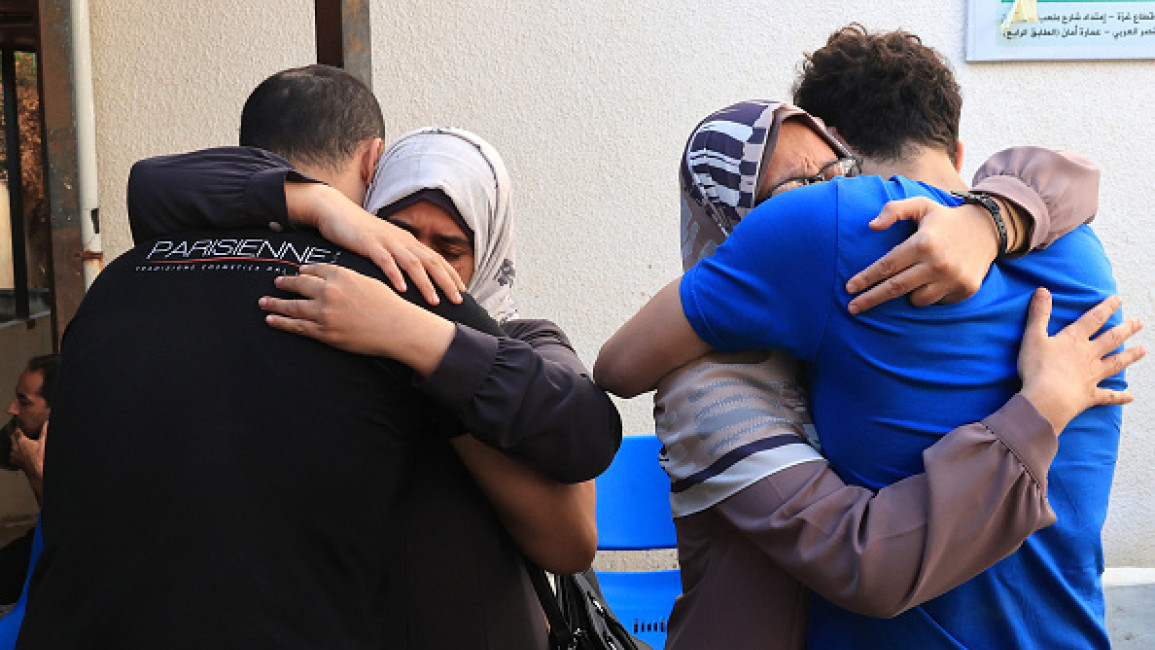Calls mount to let aid into besieged Gaza
Aid agencies on Monday called for vital humanitarian supplies to be allowed into the Gaza Strip, warning time was running out to save millions of people as water supplies dried up and food and fuel stocks dwindled.
Israel has launched relentless air strikes against the Gaza Strip in response to a surprise attack by Hamas fighters on 7 October.
Israel's onslaught on the besieged enclave has flattened neighbourhoods, killing at least 2,750 Palestinians, including over 1,000 children.
Israel has requested some 1.1 million Gazans - nearly half the population of 2.4 million - to leave the north of the densely populated enclave, in anticipation of a ground offensive.
But in doing so - and cutting off water, food and fuel supplies - it has heaped extra pressure on an impoverished territory already struggling under a years-long blockade.
As thousands massed on the Rafah border crossing with Egypt - the only one in the Gaza Strip not controlled by Israel - Prime Minister Benjamin Netanyahu ruled out a temporary ceasefire to allow aid supplies in or foreigners out.
UN humanitarian chief Martin Griffiths is heading to the Middle East Tuesday, in the latest effort of frantic diplomacy to prevent the crisis from worsening.
"We need access for aid," he said in a video statement.
The regional director of the World Health Organization, Ahmed Al-Mandhari, gave a stark warning about the situation, which he said was barrelling towards a "real catastrophe".
"There are 24 hours of water, electricity and fuel left" in Gaza, he told AFP in an interview in Cairo. If aid is not allowed in, doctors will have to "prepare death certificates for their patients", he added.
Entire families, young children and the elderly have packed what belongings they can to flee to the southern Gaza Strip, bedding down in any available space, indoors and out.
The city of Khan Yunis, which is usually home to some 400,000 people, has more than doubled its population in days.
The UN agency supporting Palestinian refugees UNRWA said on Sunday that one million people had already been displaced in the first week of the conflict - but the number was likely to be higher.
There are fears, too, that more bodies could lie under the rubble of collapsed buildings, as hospital mortuaries are overstretched and bodies have even been stored in an ice-cream truck.
The focus is now on the Rafah crossing, where a convoy of trucks with supplies is waiting on the Egyptian side.
"The situation is catastrophic beyond what I could have imagined," said Jamil Abdullah, a Palestinian-Swede who is hoping to leave after being forced to sleep on the street.
"There are corpses in the streets. Buildings are crashing down on their inhabitants. Blood is everywhere. The smell of the dead is everywhere."
US Secretary of State Antony Blinken has been shuttling between Middle Eastern capitals in recent days, hoping to coordinate efforts against Hamas.
A Gulf Cooperation Council meeting of foreign ministers is to be held on Tuesday, while another summit on the situation "and the future of the Palestinian cause and peace process" will take place in Cairo on Saturday.
President Joe Biden, who has given unequivocal US backing to Israel, is reportedly weighing an invitation from Netanyahu to visit.
Blinken said he was hopeful about getting the Rafah border open soon, as he headed back to Israel.
But Gazans themselves are effectively trapped, with neighbouring Arab nations fearful that if Palestinians leave the Strip they could be permanently exiled.
Lynn Hastings, UN humanitarian coordinator for the Palestinian territories, accused Israel of linking aid with the release of 199 hostages it says were taken by Hamas.
"Neither should be conditional," she said.





